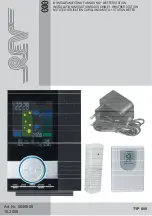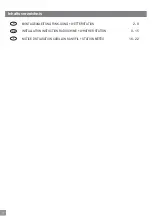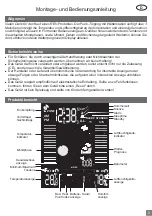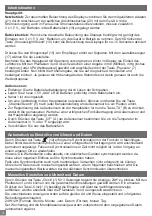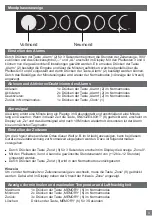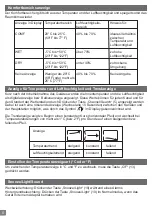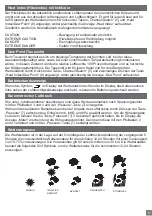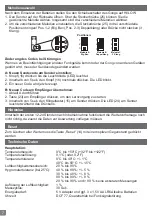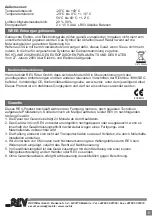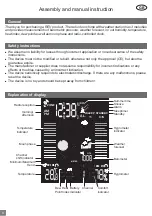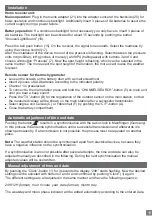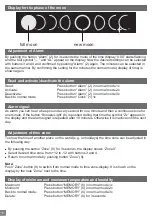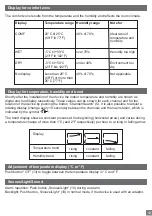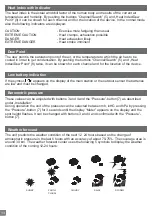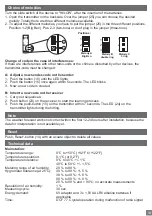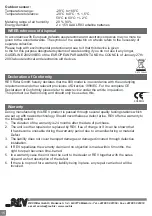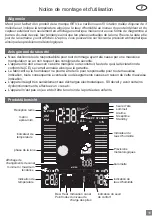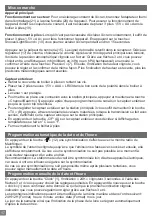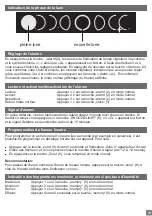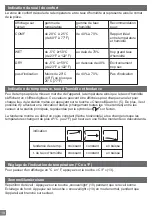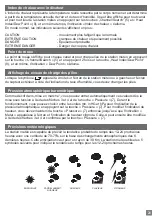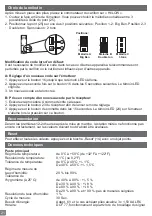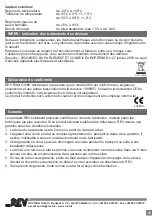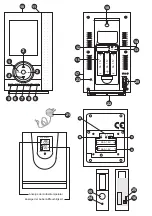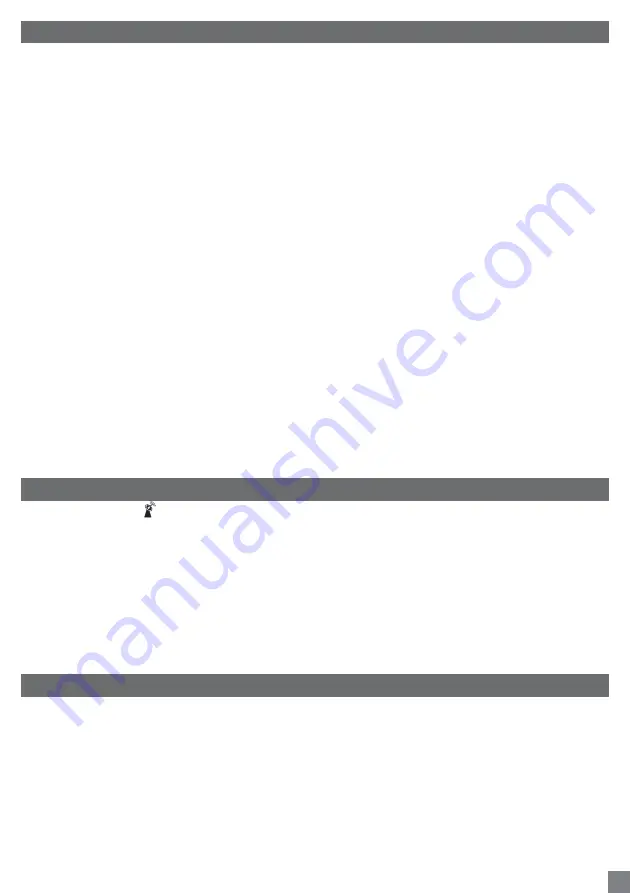
Installation
Home receiver unit:
Mains operation:
Battery operation:
Remote sensor for thermo-hygrometer
Plug in the mains adapter (21) into the adapter socket at the backside (20) for
basic operation and continuous backlight. Additionally insert 3 pieces of AA batteries to assure the
current supply during a power failure.
If a continuous backlight is not necessary you only have to insert 3 pieces of
AA batteries. The backlight can be activated for about 15 seconds by pushing the button
“Snooze/Light/Sound” (10).
After the installation of the device the unit of the pressure is flashing. Select between the pressure
units mb (millibar), inHg (inches of mercury) and hPA (hektopascal) with buttons 3 and 4 and
choose with button “Pressure” (7). Now the spot height is flashing, which can be selected in the
same manner. The more exact the spot height of the location, the more exact is also the weather
forecast.
Loosen the screws on the battery door with a small screwdriver
Insert 2 pieces of AAA batteries according to the indicated polarity
Channel 1 is preselected.
To connect to the main station press and hold the “CHANNEL/SEARCH”-button (5) on main unit
until you hear a beep sound.
Press the “TX”-button (B) for the registration of the outdoor sensor on the main station, so that
the measured values will be shown on the main station after a successful transmission.
Select degree unit Celsius (C) or Fahrenheit (F) by pushing the “C/F”-button (A).
Close the battery compartment.
!
!
!
!
!
!
!
Press the bell push button (15). On the receiver, the signal tone sounds. Select the loudness by
using the volume control (17).
Automatic adjustment of time and date
Pushing the button “
” results in a synchronisation with the radio clock in Mainflingen (Germany).
In this process the antenna symbol flashes until a successful transmission and afterwards it is
shown permanently. If a transmission is not possible, the process must be repeated on another
place.
The weather station should be synchronised apart from electrical devices, because they
have a negative influence on the synchronisation.
If a synchronisation is also not possible after several attempts, the time and date can also be
adjusted manually as described in the following. During the next synchronisation the manual
adjusted values will be overwritten.
Note:
Manual adjustment of time and date
By pushing the “Clock”-button (1) for 3 seconds the display “24H” starts flashing. Now the desired
settings can be selceted with buttons 3 and 4 and confirmed by pushing “Clock” (1) again.
The different settings are all adjusted in the same manner and have the following sequence:
24H/12H (format) hour minute year date (format) month day.
The weekday and moon phase indicator will be added automaticly according to the entered date.
10

